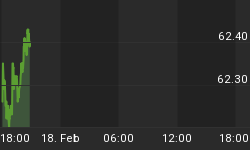First it was retail. Now it’s banking, and soon enough it might be tourism, too. Amazon started in e-commerce, but where it will end seems almost as limitless as the universe.
Last week, Amazon announced it was toying with the idea of getting into banking, with analysts suggesting it could even rival Wells Fargo even if only half of its U.S. customers jumped on board.
Amazon dominates consumerism from shopping to delivery and has a 300-million customer base. Now it’s eyeing payments in a step that would definitively close the loop.
Amazon is already in talks with major financial institutions, including JP Morgan Chase and Capitol One, to develop an Amazon-branded checking account designed to appeal to younger consumers—in other words, to those consumers who don’t already have a checking account.
So, it’s a product, rather than a bank itself. And because big banks would be involved, we don’t expect disruption on that end, but it could disrupt the financial services industry in other ways—and the payments sector in particular.
“We could imagine Amazon’s banking services growing to more than 70 million U.S. consumer relationships over the next five years or so—the same as Wells Fargo, the third-largest bank in the U.S.,” reports cited analysts from Bain & Company as saying.
But this is only one segment that this beast has attempted to take on. The others have been unrivaled successes.
Amazon owns online retail, and Walmart’s recent dismal showing has only solidified that in the minds of those following this battle for dominance. But it’s gone beyond online retail now, and into physical, ‘brick-and-mortar’ retail. It’s got its own stores now, and it scooped up Whole Foods Market last year.
Talk of “monopoly” first emerged with Amazon’s $13-billion-plus acquisition of Whole Foods, the sixth-largest grocery story in the U.S. It was a great deal for Amazon because only an hour after it announced its purchase plan, it’s stock spiked, adding $14 billion to its value. There’s nothing more brilliant than this: Amazon got Whole Foods for free.
It has a huge presence in entertainment through Prime Video, which is bulldozing its way into expansion, and it’s also hoping to crush Apple in the smart home market.
Not even healthcare has been immune from Amazon’s tentacles. Earlier this year, Amazon unveiled a partnership plan with Berkshire Hathaway and JPMorgan Change for the creation of an independent healthcare company that would, so it says, fix the U.S. healthcare system. And for good measure, it’s also undercutting the pharma industry by selling its own line of over-the-counter health products that could hit at pharma bottom lines. Related: Data Leaks May Cost $6 Trillion By 2021
And beyond its talk of getting into banking, watch Amazon take on delivery services and giants such as FedEx and UPS, and possibly even online tourism services, if analysts’ predictive abilities are spot on.
FedEx, for one, says it’s not scared—at all. Its senior VP of integrated marketing and communications, Patrick Fitzgerald, told the Memphis Business Journal that a WSJ report missed the mark entirely.
He told the journal:

(Click to enlarge)
Now, Morgan Stanley is predicting that Amazon will go after the online travel business.
“Amazon’s focus on selection/service, pricing, and frictionless payments that drive conversion and stronger user economics also translate directly to travel,” analyst Brian Nowak told clients last week.
The rationale is this: While Booking and Expedia spent hundreds of millions of dollars every year to acquire their hotel room inventory, Amazon would do it with ease, and it’s already got the customer base.
There’s not much standing in your way when you have a 300-million consumer base that remains loyal.
By David Craggen for Safehaven.com
More Top Reads From Safehaven.com:

















